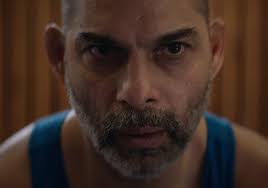355 total views, 1 views today
Opponent 2023 Movie Review
While war, famine, and political persecution have been part of our life since the dawn of society, for the last decade, we’ve been experiencing a new refugee crisis, as recent conflicts in the Middle East bring thousands of people to Europe. And as art is our favorite way to better understand the world around us, it’s not surprising to find more and more refugee stories in theaters. While most of these films focus on the clash of cultures, prejudice, or material hurdles, Milad Alami’s Opponent uses the refugee crisis as a background to tell a gripping story about masculinity and family values.
As a person born in Iran and raised in Sweden, writer and director Alami has a unique perspective when it comes to exploring the challenges of Iranians in Nordic Europe. Opponent does the best with the filmmaker’s personal experience, putting patriarch Iman (Payman Maadi) and his family in a hotel that serves as a shelter for refugees asking for asylum in Sweden. By using language as a support to explain the cultural differences between the two countries, Opponent seemingly alters Swedish and Farsi, using Iran’s current language as a refuge for the dislocated family and the harsh and cold Nordic language as an obstacle to be overcome.
Inside the hotel, Iman’s family has to share a small bedroom and do whatever they can to rebuild their life after running away from Iran in the middle of the night, supposedly because the patriarch was wrongly accused of rebelling against the country’s totalitarian government. After two years in Sweden, Iman’s family is still trapped in bureaucratic hell while waiting for the visa request to be accepted. Meanwhile, Iman struggles to learn Swedish, gives his two daughters a proper education, and remains the anchor of his family. Ready to format his entire life according to Swedish expectations of how a refugee should behave, Iman even decides to go back to wrestling, hoping that his incredible talent for the sport can weigh in his favor during the visa process.
Once Iman is back at wrestling, Opponent shifts its focus from the refugee situation to a thorough exploration of what it means to be a man, both in Iran and Sweden. Amidst sweat, muscles, and naked bodies, Iman is forced to confront the ideals of masculinity that pushed him to become a wrestler and to occupy a dominant position inside his family. The sport also serves as the catalyst to explore the details of Iman’s exodus and his marital conflicts with his wife. That’s when Opponent starts to shine, as the movie turns into a unique character study while also serving as an investigation of masculinity as a social construct.
Fighting against himself and trapped between his family duties and his desire for independence, Iman overcomes the constraints of the refugee label. While his particular social condition is still central to his choices, the emotional contradictions of Iman are much more complex than what we could expect at the first glance. And by allowing his protagonist to escape the position of victim, Alami turns his refugee story into a universal tale of a man trying to figure out who he wants to be while being trapped by social expectations and haunted by his past sins. It helps that Alami has written Iman as contradictory as only a human can be, as the patriarch sometimes acts as a tyrant to his family while also being ready to sacrifice everything for their safety. On that note, Maadi does a spectacular job in the role of Iman, doing most of his microexpressions to expose his character’s inner universe even when linguistic barriers prevent him from speaking his mind.
Opponent is mainly about a man at odds with himself, but Alami still takes the focus away from Iman sometimes to show how other refugees have their personal hardships to overcome. However, while these minor detours paint a vivid picture of the hardships of refugee life, they don’t always help the audience understand the main character. It’s easy to understand why Alami spent so much time exploring the everyday challenges refugees must overcome, even in wealthy countries, as Opponent has an obvious political ethos. And the brutal imagery Alami conjures in his feature can be so intense at times that not one viewer will remain indifferent to the woes of refugees. However, while the effort is commendable, it also hurts the pacing of Iman’s story. As a result, Opponent’s 118-minute runtime can sometimes become demanding, especially since so much of the movie is dedicated to contemplation instead of action.
Despite some pacing issues, Alami’s sophomore feature is a testament to the power of cinema to turn deeply personal stories into universal ones. Instead of reproducing expected clichés when it comes to refugee stories, Opponent leans over the many ways of being a man, both in the Western world and in the Middle East, and how hard it is to ignore your feeling just to fit in. There are no simple answers to Opponent’s complicated questions, but it’s great there exist a movie out there willing to ask them.
